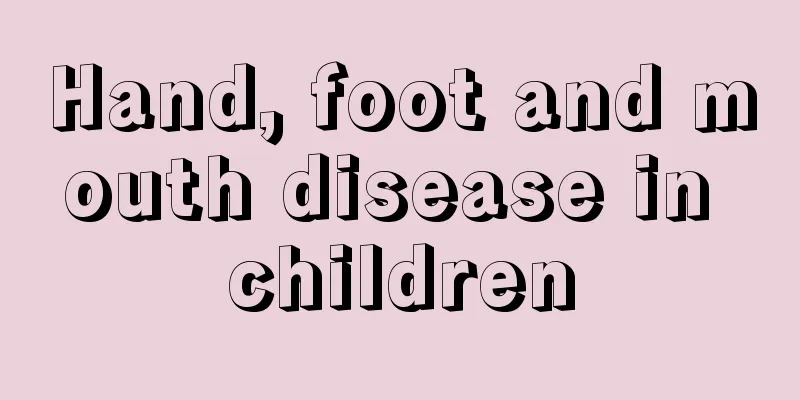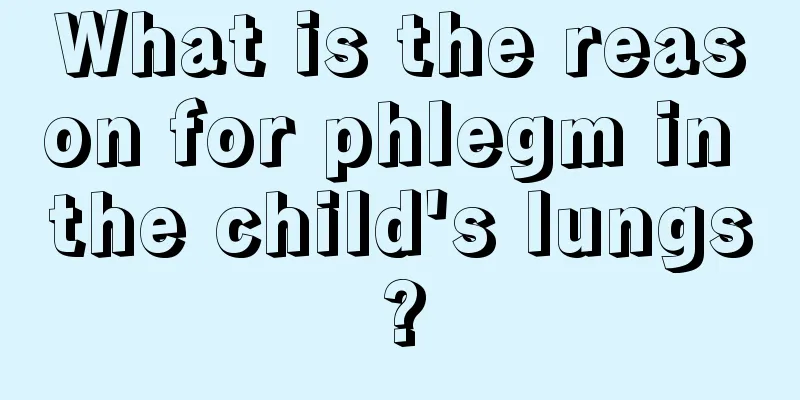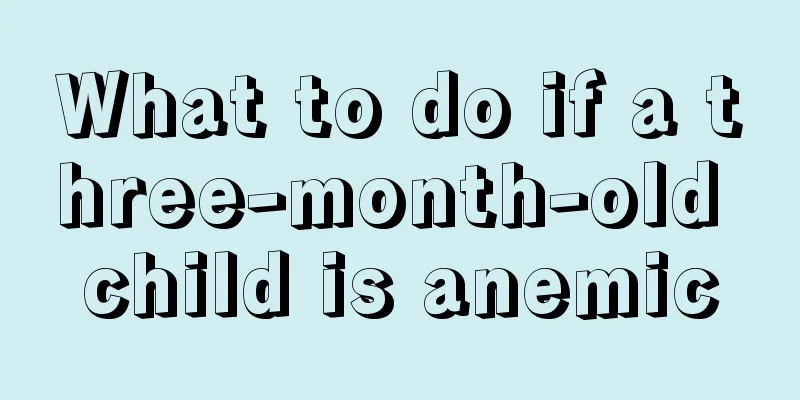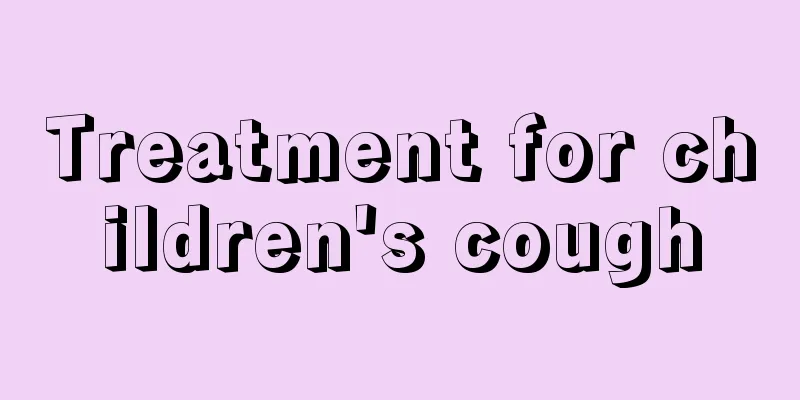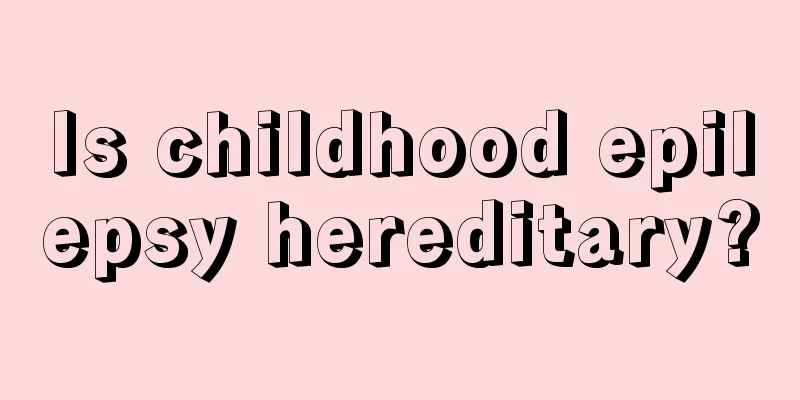Symptoms of autism in babies
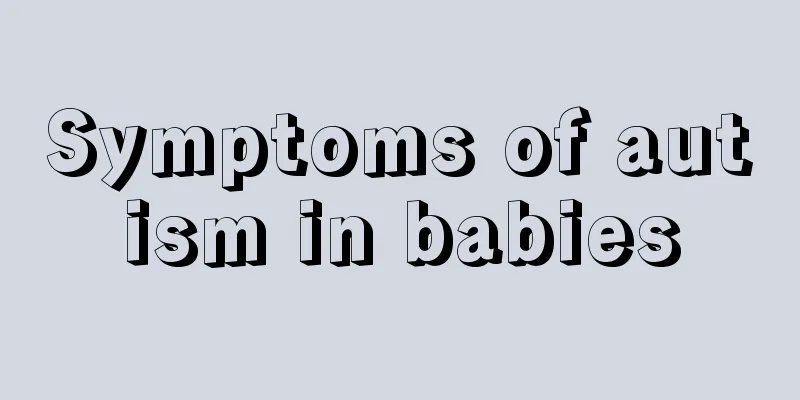
|
A baby's personality is developing before the age of four, and his or her personality is generally determined after the age of four. Therefore, parents should cultivate their children's personality before the age of four. Due to environmental factors and the influence of parents and people around them, babies may have some special phenomena. Their personalities are not cheerful, but introverted or even autistic. Parents should pay attention to this because it affects the child's life. A baby's personality is developed before the age of four, so if the baby's abnormality is discovered early and treated early, there is still a chance of recovery. What are the manifestations of autism in babies? Let's learn about the manifestations of autism in babies. 1. Language Barrier Language and communication disorders are important symptoms of autism and the main reason why most children seek medical treatment. Language and communication disorders can manifest in many forms. Most children with autism have delayed or impaired language development. They usually still cannot speak at the ages of two and three, or they experience language regression after normal language development. They have expressive language before the age of 2 to 3 years, which gradually decreases with age or is even lost completely. They remain silent for life or, in rare cases, use limited language. They have some degree of obstacles in their perception and expression of language. 2. Social interaction disorder The patient is unable to establish normal interpersonal relationships with others. When they are young, they do not make eye contact with others, have a dull expression, lack the expression or gesture of expecting hugs and caresses from their parents or others, and have no happy expression when enjoying caresses, and even reject hugs and caresses from their parents and others. He cannot distinguish between close and distant relationships and treats his relatives with the same attitude as he treats other people. Unable to establish a normal attachment relationship with parents, patients have difficulty establishing normal partnerships with children of the same age. For example, they tend to stay alone in kindergarten and do not like to play with their peers. When they see some children playing games enthusiastically together, they have no interest in watching or desire to participate. 3. Narrow interests and stereotyped behavior patterns The patient is not interested in the games and toys that normal children are keen on, but likes to play with non-toy objects, such as a bottle cap, or observe the rotating electric fan, etc., and can last for dozens of minutes or even several hours without feeling bored. Not interested in the main features of toys, but very concerned about non-main features: patients stubbornly require to keep the daily activity routine unchanged, such as going to bed at the same time, covering the same quilt, taking the same route when going out, etc. If these activities are stopped or behavioral patterns are changed, the patient will express obvious unhappiness and anxiety, and even engage in rebellious behavior. Patients may have repetitive stereotyped movements, such as clapping their hands, turning in circles, licking the wall with their tongue, stomping their feet, etc. 4. Intellectual Disability Among children with autism, the intelligence levels are very inconsistent. A few patients are within the normal range, while most patients show varying degrees of intellectual disability. Domestic and foreign studies have shown that intelligence tests on autistic children revealed that about 50% of them had moderate or above intellectual disabilities (IQ less than 50), 25% had mild intellectual disabilities (IQ 50-69), and 25% had normal intelligence (IQ greater than 70). Those with normal intelligence are called high-functioning autism. Parents should pay attention to the baby's various behaviors, which is also very important for the cultivation of character. If the above-mentioned phenomena occur, you should pay attention and consult a doctor for treatment. A person's character is very important, so the baby's abnormality is also very sad for the parents. If it is discovered as early as possible, it must be treated immediately so that it can be treated well. |
>>: What to do if your baby stutters
Recommend
What are the developmental standards for babies at 14 months?
For every parent, they are particularly concerned...
What kind of exercise can children do to grow taller?
Although we all know whether a person can grow ta...
How many months does a child start talking?
With the development of society, more and more pa...
Is it possible to see blood in children's urine?
Hematuria is a common phenomenon in normal times....
Causes of high hemoglobin in children
If a child has high hemoglobin, it is particularl...
Is it necessary for children to attend early childhood education?
In order to enable their children to learn more k...
How old should milk powder be consumed?
Milk powder is a very common food with high nutri...
What should I do if my child has recurrent bronchial pneumonia?
Some people think that pneumonia only exists in m...
What should I do if my child’s teeth are crooked? These tips are very effective
Every parent hopes that their children will have ...
What to eat when a child has stomachache
Many children are too young and ignorant, and do ...
Why is my child having trouble breathing?
Oxygen is the most important substance for human ...
What to eat for children who get carsick
Motion sickness is a symptom that many people hav...
Why are baby's eye bags purple?
If your baby has purple eye bags, it is generally...
Why is my five-month-old baby crying in the middle of the night?
We know that good sleep is directly related to th...
What causes nose bleeding in children?
Some children often have nosebleeds. Sometimes th...


